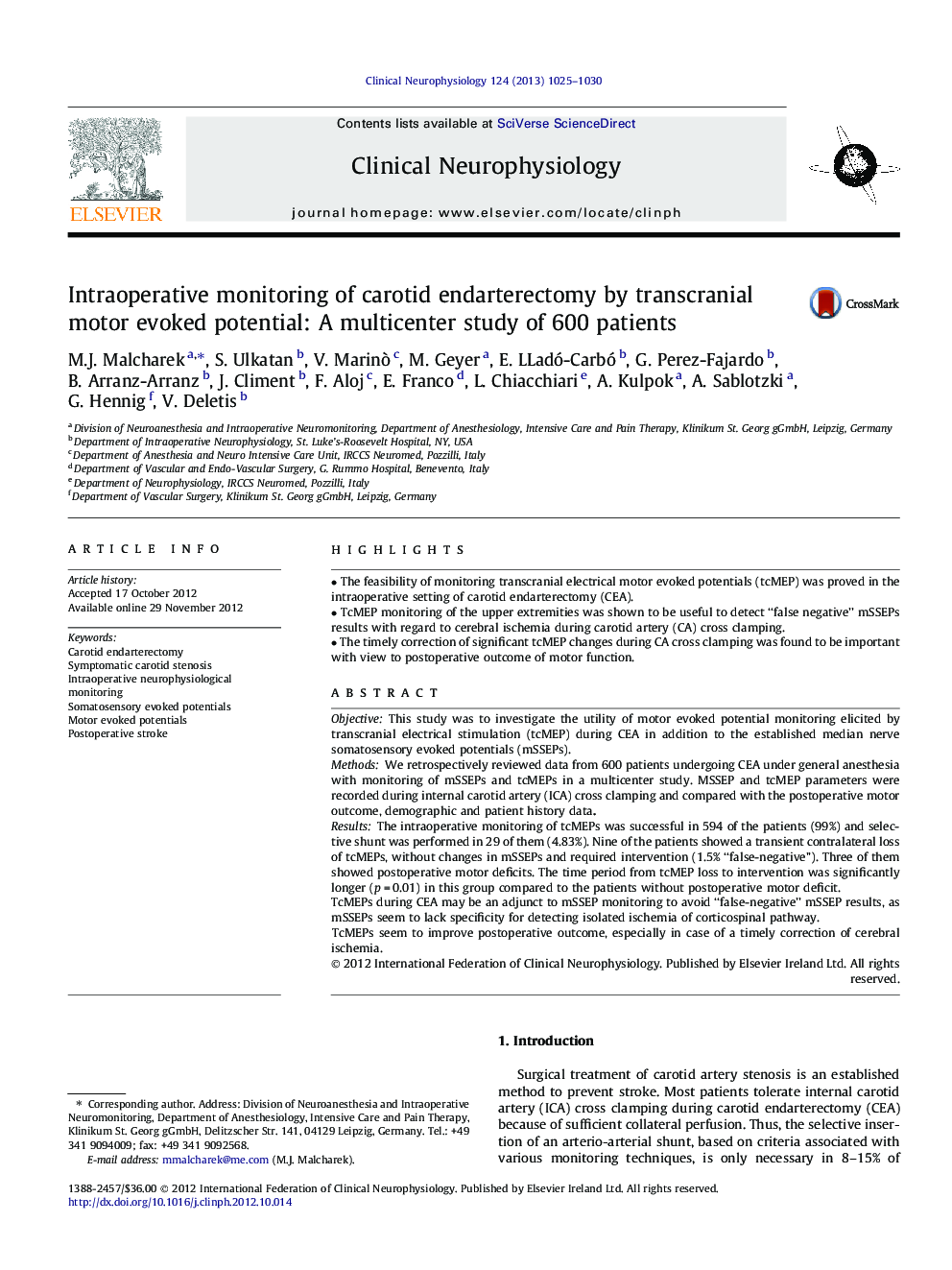| کد مقاله | کد نشریه | سال انتشار | مقاله انگلیسی | نسخه تمام متن |
|---|---|---|---|---|
| 3044342 | 1184997 | 2013 | 6 صفحه PDF | دانلود رایگان |

ObjectiveThis study was to investigate the utility of motor evoked potential monitoring elicited by transcranial electrical stimulation (tcMEP) during CEA in addition to the established median nerve somatosensory evoked potentials (mSSEPs).MethodsWe retrospectively reviewed data from 600 patients undergoing CEA under general anesthesia with monitoring of mSSEPs and tcMEPs in a multicenter study. MSSEP and tcMEP parameters were recorded during internal carotid artery (ICA) cross clamping and compared with the postoperative motor outcome, demographic and patient history data.ResultsThe intraoperative monitoring of tcMEPs was successful in 594 of the patients (99%) and selective shunt was performed in 29 of them (4.83%). Nine of the patients showed a transient contralateral loss of tcMEPs, without changes in mSSEPs and required intervention (1.5% “false-negative”). Three of them showed postoperative motor deficits. The time period from tcMEP loss to intervention was significantly longer (p = 0.01) in this group compared to the patients without postoperative motor deficit.ConclusionTcMEPs during CEA may be an adjunct to mSSEP monitoring to avoid “false-negative” mSSEP results, as mSSEPs seem to lack specificity for detecting isolated ischemia of corticospinal pathway.SignificanceTcMEPs seem to improve postoperative outcome, especially in case of a timely correction of cerebral ischemia.
► The feasibility of monitoring transcranial electrical motor evoked potentials (tcMEP) was proved in the intraoperative setting of carotid endarterectomy (CEA).
► TcMEP monitoring of the upper extremities was shown to be useful to detect “false negative” mSSEPs results with regard to cerebral ischemia during carotid artery (CA) cross clamping.
► The timely correction of significant tcMEP changes during CA cross clamping was found to be important with view to postoperative outcome of motor function.
Journal: Clinical Neurophysiology - Volume 124, Issue 5, May 2013, Pages 1025–1030